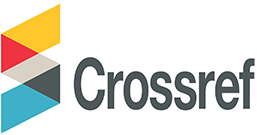Integrating Music into Curriculum Design: Strategies for Enhancing Student Achievement and Cognitive Skills
DOI:
https://doi.org/10.69760/aghel.0250040002Keywords:
arts integration, music education, academic achievement, working memoryAbstract
This study investigates the effects of integrating music into elementary-level math and language arts instruction over 12 weeks. Sixty students were divided into experimental and control groups; only the experimental group received music-enhanced lessons. Academic tests and working memory assessments were administered before and after the intervention. Results showed that students exposed to music-integrated teaching outperformed controls in standardized tests—especially in mathematics—and demonstrated significantly improved working memory. Teacher interviews highlighted increased engagement and effective use of mnemonic songs. These findings suggest that incorporating music into curricula can support both academic achievement and cognitive development. Broader implementation and further research are encouraged.
References
Akin, A. (2023). Let me make mathematics and music together: A meta-analysis of the causal role of music interventions on mathematics achievement. Educational Studies. Advance online publication. https://doi.org/10.1080/03055698.2023.2216826
Alisoy, H., & Sadiqzade, Z. (2024). Mobile-Assisted Language Learning (MALL): Revolutionizing Language Education. Luminis Applied Science and Engineering, 1(1), 60-72. https://doi.org/10.69760/lumin.202400002
Alisoy, H., Hajiyeva, B., & Sadiqzade, Z. (2024). CONNECT WITH ENGLISH A2-B1 SPEAKING HANDBOOK . Journal of Azerbaijan Language and Education Studies, 1(2), 1-115. https://doi.org/10.69760/jales.2024.00115
Babayev, J. (2025). Characteristics of the Direct method. EuroGlobal Journal of Linguistics and Language Education, 2(2), 32-38.
Bergman Nutley, S., Brod, G., & Klingberg, T. (2014). Music practice is associated with development of working memory during childhood and adolescence. Frontiers in Human Neuroscience, 7, 926. https://doi.org/10.3389/fnhum.2013.00926
Bialystok, E., & DePape, A. M. (2009). Musical expertise, bilingualism, and executive functioning. Journal of Experimental Psychology: Human Perception and Performance, 35(2), 565–574. https://doi.org/10.1037/a0012735
Chan, A. S., Ho, Y. C., & Cheung, M. C. (1998). Music training improves verbal memory. Nature, 396(6707), 128. https://doi.org/10.1038/24075
Degé, F., Kubicek, C., & Schwarzer, G. (2011). Music lessons and intelligence: A relation mediated by executive functions. Music Perception, 29(2), 195–201. https://doi.org/10.1525/mp.2011.29.2.195
Guhn, M., Emerson, S. D., & Gouzouasis, P. (2019). A population-level analysis of associations between school music participation and academic achievement. Journal of Educational Psychology, 111(6), 1047–1067. https://doi.org/10.1037/edu0000376
Habibi, A., Damasio, A., Ilari, B., Sachs, M. E., & Damasio, H. (2018). Music training and child development: A review of recent findings from a longitudinal study. Annals of the New York Academy of Sciences, 1423(1), 73–81. https://doi.org/10.1111/nyas.13606
Ho, Y. C., Cheung, M. C., & Chan, A. S. (2003). Music training improves verbal but not visual memory: Cross-sectional and longitudinal explorations in children. Neuropsychology, 17(3), 439–450. https://doi.org/10.1037/0894-4105.17.3.439
Hyde, K. L., Lerch, J. P., Norton, A., Forgeard, M., Winner, E., Evans, A. C., & Schlaug, G. (2009). Music training shapes structural brain development. Journal of Neuroscience, 29(10), 3019–3025. https://doi.org/10.1523/JNEUROSCI.5118-08.2009
Jaschke, A. C., Honing, H., & Scherder, E. J. (2018). Longitudinal analysis of music education on executive functions in primary school children. Frontiers in Neuroscience, 12, 103. https://doi.org/10.3389/fnins.2018.00103
Javid, B., & Sayyara, S. (2024). The Most Ideal L2 Teaching Method. International Journal of Religion, 5(7), 367-378.
Knott, D., & Thaut, M. H. (2018). Musical mnemonics enhance verbal memory in typically developing children. Frontiers in Education, 3, 31. https://doi.org/10.3389/feduc.2018.00031
Mammadova, I. (2024). The Role of Proverbs in Language Learning: A Cognitive and Cultural Perspective. EuroGlobal Journal of Linguistics and Language Education, 1(1), 40-45.
Moreno, S., Bialystok, E., Barac, R., Schellenberg, E. G., & Chau, T. (2011). Short-term music training enhances verbal intelligence and executive function. Psychological Science, 22(11), 1425–1433. https://doi.org/10.1177/0956797611416999
Nie, P., Wang, C., Rong, G., Du, B., Lu, J., Li, S., ... & Tervaniemi, M. (2022). Effects of music training on the auditory working memory of Chinese-speaking school-aged children: A longitudinal intervention study. Frontiers in Psychology, 12, 770425. https://doi.org/10.3389/fpsyg.2021.770425
Osborne, M. S., McPherson, G. E., Faulkner, R., Davidson, J. W., & Barrett, M. S. (2016). Exploring the academic and psychosocial impact of El Sistema-inspired music programs within two low socio-economic schools. Music Education Research, 18(2), 156–175. https://doi.org/10.1080/14613808.2015.1056130
Rodriguez-Gomez, D. A., & Talero-Gutiérrez, C. (2022). Effects of music training on executive function performance in children: A systematic review. Frontiers in Psychology, 13, 968144. https://doi.org/10.3389/fpsyg.2022.968144
Sadigzade, Z. (2025). Phraseological Universals and Particulars: A Cross-Cultural Examination of English Expressions. Porta Universorum, 1(4), 54-62. https://doi.org/10.69760/portuni.0104005
Sadiqzade, Z. (2024). Fostering Emotional Intelligence in Language Learners. Journal of Azerbaijan Language and Education Studies, 1(1), 67-76. https://doi.org/10.69760/jales.2024.00106
Sadiqzade, Z. (2024). The Impact of Music on Language Learning: A Harmonious Path to Mastery. EuroGlobal Journal of Linguistics and Language Education, 1(1), 134-140. https://doi.org/10.69760/zma1bn56
Sadiqzade, Z. (2025). From Neologisms to Idioms: Tracing Literary Innovation in the Evolution of the English Lexicon. Porta Universorum, 1(1), 13-18. https://doi.org/10.69760/k2g75h54
Sadiqzade, Z. (2025). Idiomatic Expressions and Their Impact on Lexical Competence. Journal of Azerbaijan Language and Education Studies, 2(1), 26-33. https://doi.org/10.69760/jales.2025001002
Sadiqzade, Z., & Alisoy, H. (2024). Level-Up Learning: Using Games to Teach English Across Student Levels. EuroGlobal Journal of Linguistics and Language Education, 1(3), 181-194. https://doi.org/10.69760/egjlle.20240104
Sala, G., & Gobet, F. (2017). When the music’s over. Does music skill transfer to children’s and young adolescents’ cognitive and academic skills? A meta-analysis. Educational Research Review, 20, 55–67. https://doi.org/10.1016/j.edurev.2016.11.005
Schellenberg, E. G. (2004). Music lessons enhance IQ. Psychological Science, 15(8), 511–514. https://doi.org/10.1111/j.0956-7976.2004.00711.x
Schellenberg, E. G. (2006). Long-term positive associations between music lessons and IQ. Journal of Educational Psychology, 98(2), 457–468. https://doi.org/10.1037/0022-0663.98.2.457
Zuk, J., Benjamin, C., Kenyon, A., & Gaab, N. (2014). Behavioral and neural correlates of executive functioning in musicians and non-musicians. PLOS ONE, 9(6), e99868. https://doi.org/10.1371/journal.pone.0099868
Downloads
Published
Issue
Section
License
Copyright (c) 2025 Acta Globalis Humanitatis et Linguarum

This work is licensed under a Creative Commons Attribution-NonCommercial 4.0 International License.







